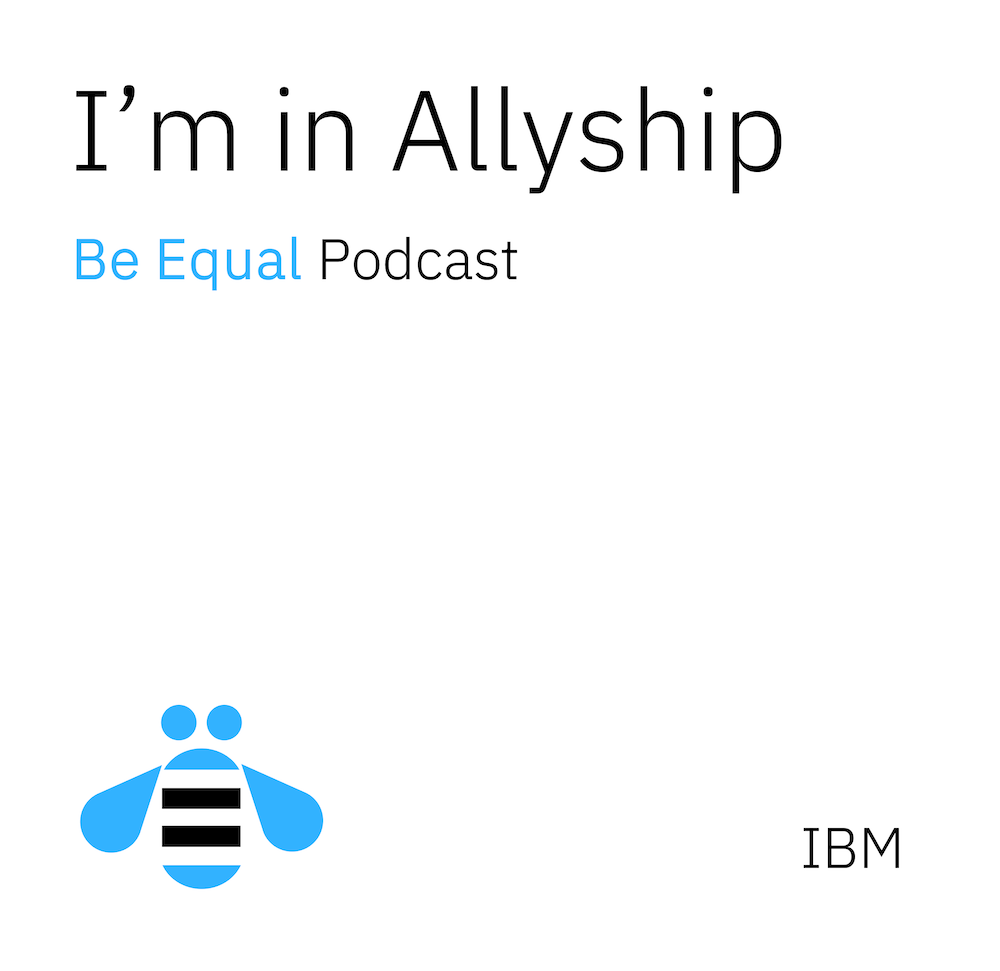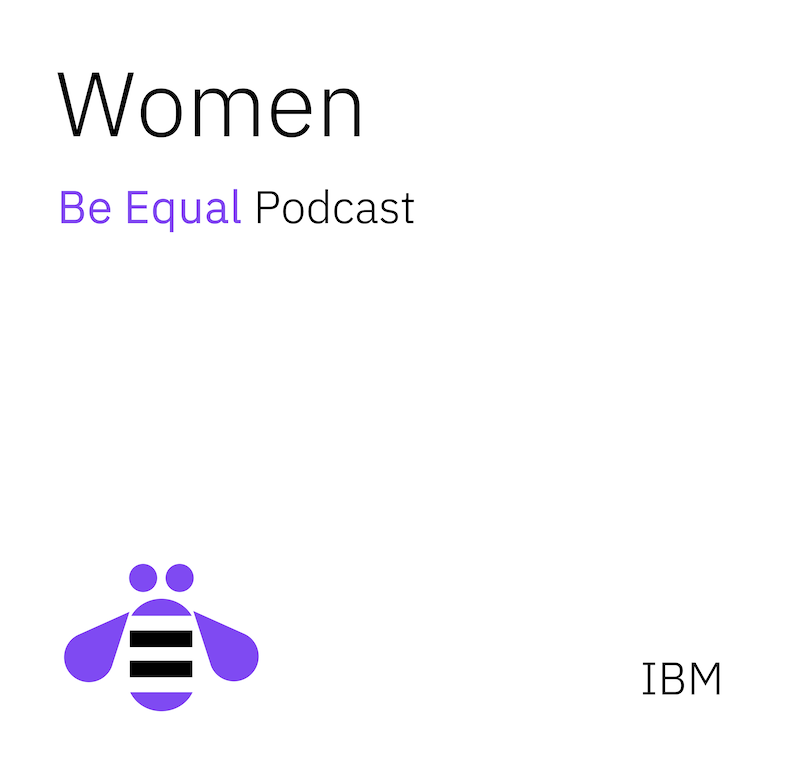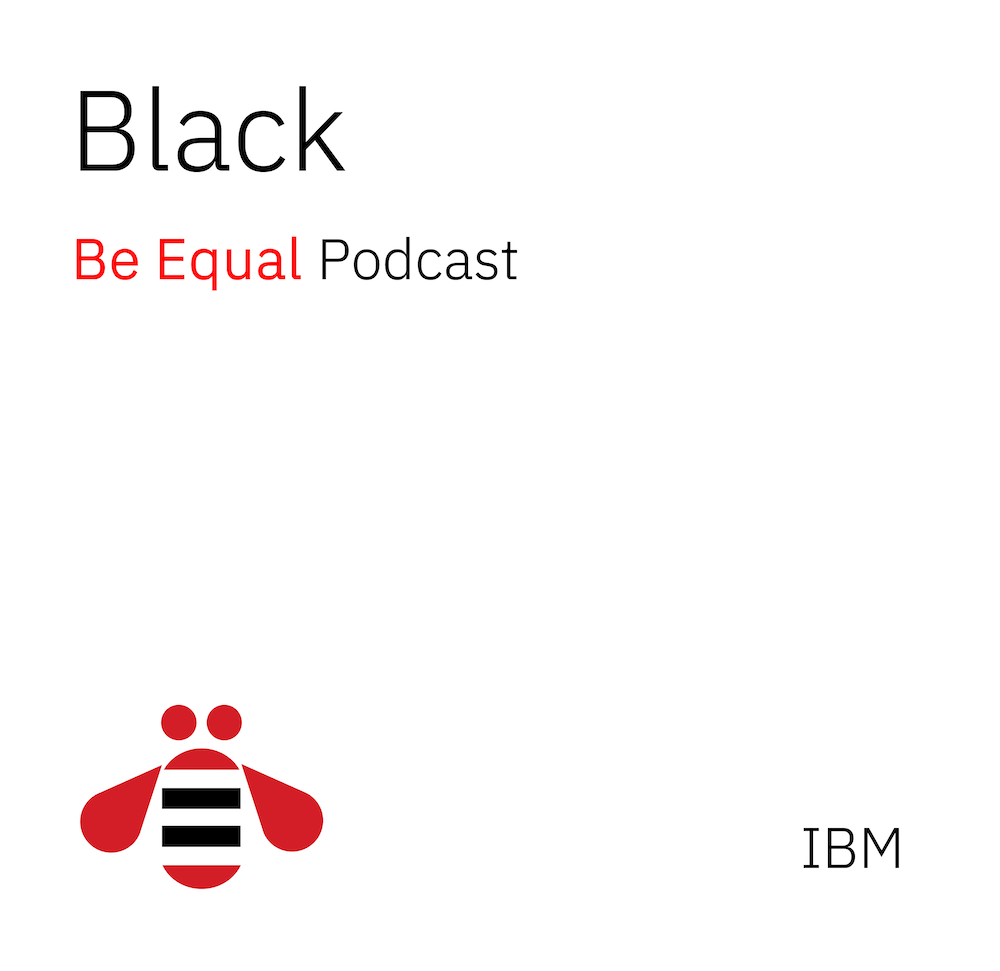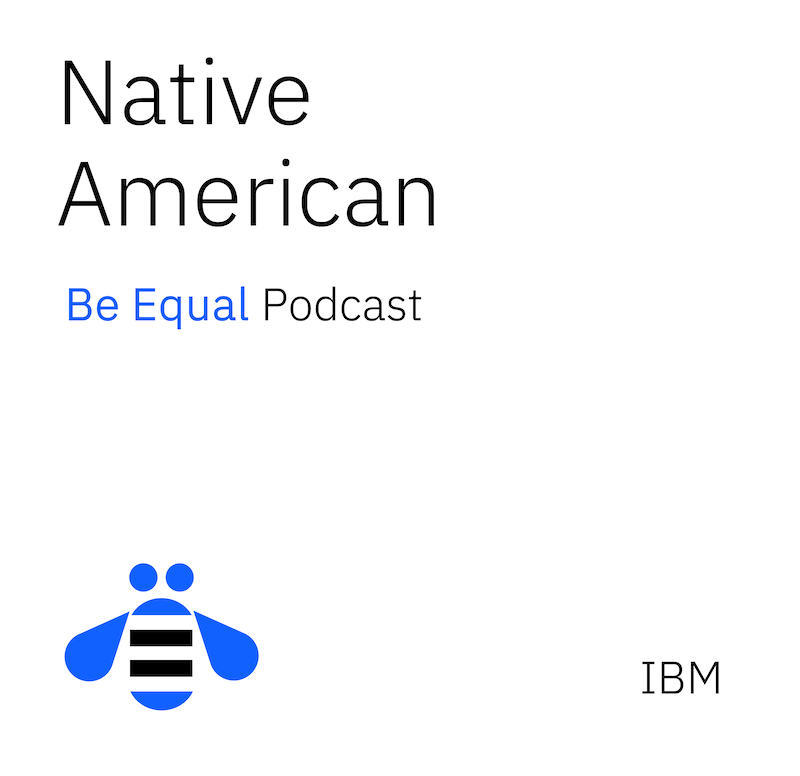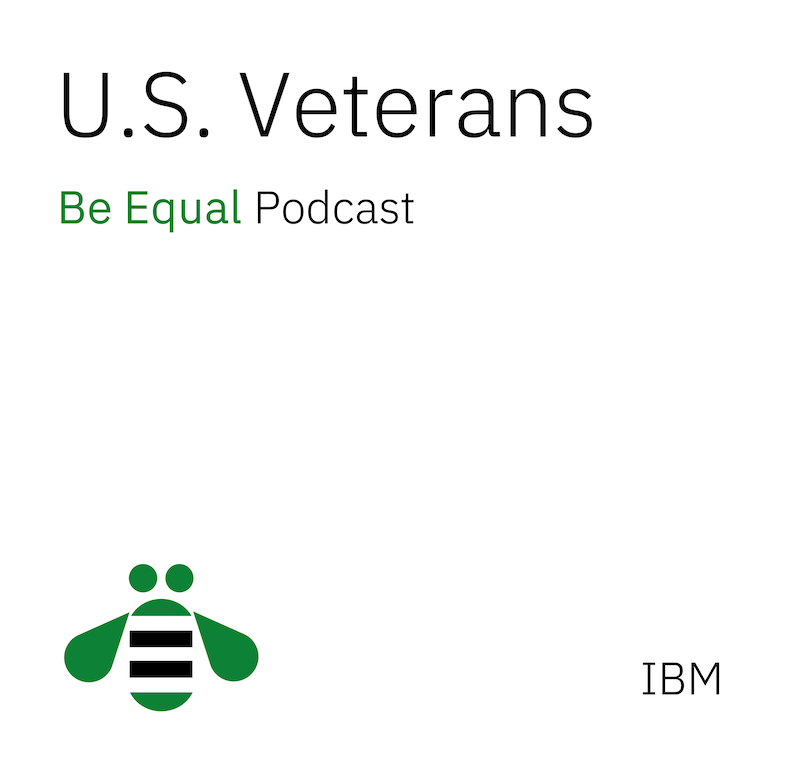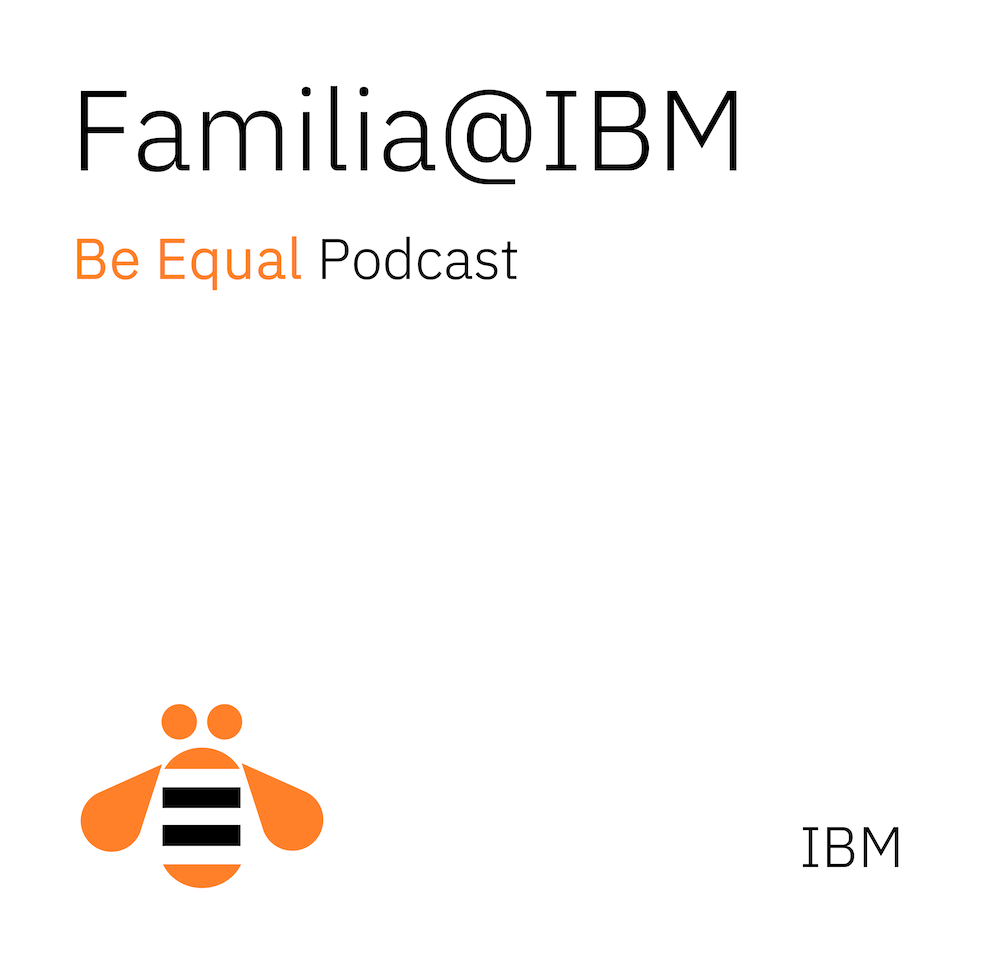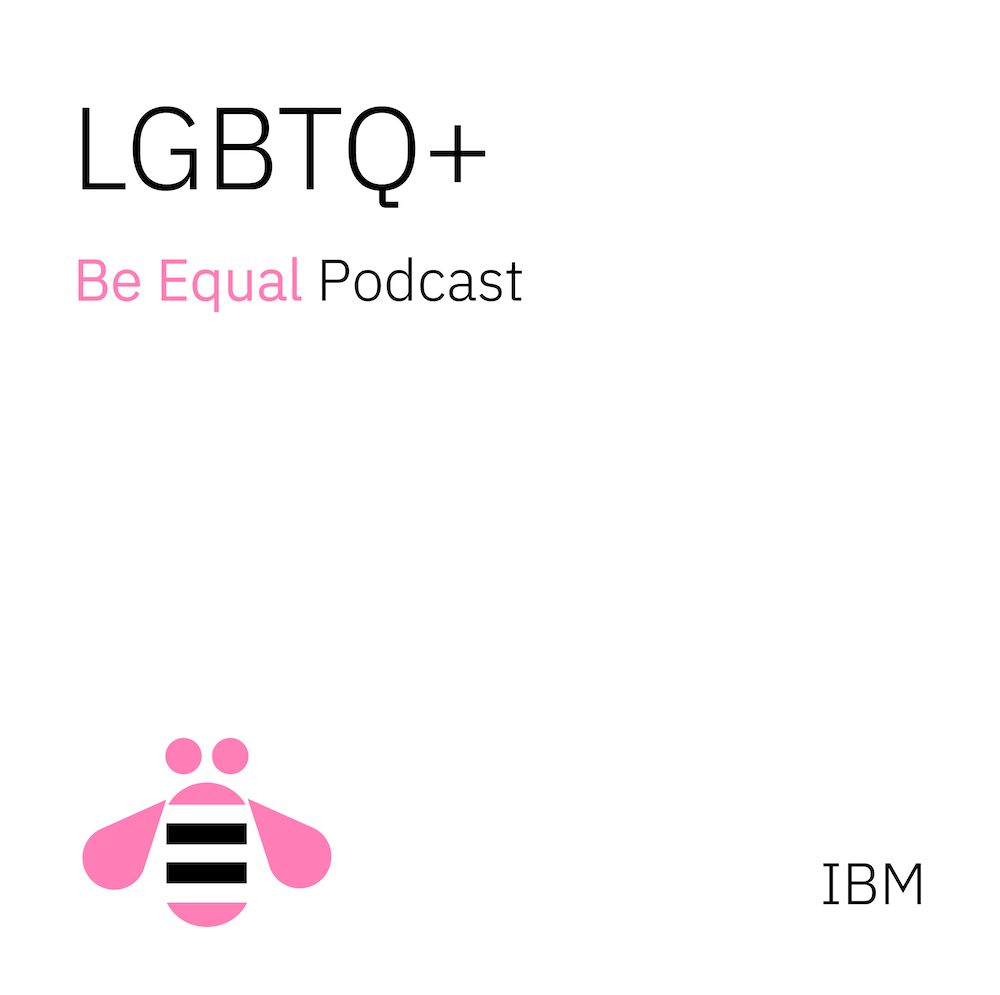I'm in – IBM Allyship Campaign
- 0.5
- 1
- 1.25
- 1.5
- 1.75
- 2
Jill Stewart: Hello and welcome to our IBM Be Equal podcast. I'm Jill Stewart. I'm the director of D&I for IBM. On today's episode, you'll hear from some very special guests. First, I'd like to introduce to you Kitty Chaney Reed, IBM's Chief Leadership, Culture and Inclusion officer. Hi, Kitty. Thanks for joining us. How are you today?
Kitty Chaney-Reed: Hi, Jill. I am fantastic. I just returned from vacation, and I couldn't be more relaxed. So it's a pleasure to be here today joining you and our podcast with listeners from around the world.
Jill Stewart: Great, Kitty. I just want to jump right into our topic today, which is all around the power of allyship when it comes to advocating and being a catalyst for inclusion for everyone. Back in March, we launched an internal campaign called I'm in Allyship across IBM globally. It had the goal of fostering a culture of support and collaboration where leaders and employees were enabled to advocate for underrepresented groups. It's also encouraging individuals to recognize and challenge systematic bias. So, creating an inclusive environment that empowers each individual to thrive and contribute their unique perspectives and talents. So now, Kitty, why don't you share more of your perspective around the campaign? I know we'll have some data to share as well.
Kitty Chaney-Reed: Sure, Jill. I think the first thing I'd like to say is being an ally is a personal commitment. It's a commitment that one makes from deep inside, and it is a journey. I always like to say allyship is an active sport. An ally, it's really a person who's made a personal decision to take a stance and act on it. There are so many aspects of this campaign and how it's been designed in order not only to inform but to educate and engage people. It's how we take things to the next level, I think. There's some specific highlights I'd like to share. First, the campaign is hosted on our intranet websites. It has content that enables people to learn about our eight communities: Black, Hispanic, Indigenous, LGBTQ +, Pan- Asian, and People with Diverse Abilities, and let's not forget, Veterans and Women. Our total page views thus far is an astounding 33, 000 and that includes visitors from more than 68 countries. This means that everybody's interested in inclusion and diversity. Another dimension of the program and the campaign is the Be Equal Ally badge. It's a digital certification. I'm sure a lot of you've heard about it. We've had 1, 500 people certified since the campaign was launched. And this is not just a certification with online content that you have to go through in order to be certified. It actually requires you to take action and to show and share real- life examples of how you've demonstrated allyship in your day-to-day. I love this badge. And then we've had hundreds of people joining, what I am really excited about, something called Allyship Circles. These are safe space discussions where IBMers can join our D&I community leaders and executive sponsors to learn compelling facts about various groups. As part of the dynamic, people are invited to join breakout sessions to ask whatever questions they may have, and they learn how to take the next step to become better allies. I love, love, love this aspect of the campaign Allyship Circles. And then coming next is our Executive Speed Mentoring. This one's going to be fun. It's going to be an opportunity to really put some tentacles into the campaign. It'll continue through the remainder of the year, so throughout 2023. And the team is already thinking about how we take it to the next level in 2024. So really exciting stuff wrapped up in this campaign, Jill.
Jill Stewart: Kitty is so, so powerful. The team has really thought through this entire campaign, and I am so, so pleased about how well it's doing. I remember when the team shared those numbers with me, I was so impressed. And this is just amazing work done by IBMers for IBMers. I love it. And I want to thank our amazing, amazing D&I team. I remember when we launched the campaign in a signature event, and one of the guest speakers, an external speaker was Jeffery Halter. He's the author and organizer of YWomen. He joined us for the panel... And let's just hear a quick snip of what Jeffery told us when he heard about the launch of the allyship campaign because he was very, very impressed.
Jeffery Halter: Thank you. And everyone, I can't tell you how honored I am to be joining IBM today. I've worked in the field of diversity, equity, and inclusion for over 20 years, and I hold your company in such high regards. And for a company of your level to realize there is still work to be done is just so critically important. But this topic of moving from awareness to advocacy is really what our focus is today. And I think it's great to start by grounding ourself in what is allyship. And believe it or not, the concept has been around for a long time, but it's so prevalent right now, Dictionary. com named it its Word of the Year because it is starting to become so important and companies like IBM are realizing this and jumping in with both feet. The status of role of a person who advocates and actively works for the inclusion of a marginalized or underrepresented group, not as a member of that group, but in solidarity to its struggle and point of view. And this is what's so critical and there's some key actions that come out of this. Allyship does not come with any special rewards. I'm excited that IBM actually lets you do that, but typically, there's no rewards for this. It's just something we need to do.
Jill Stewart: So, Jeffery definitely bought a really good perspective and data- based insights related to allyship during that panel. He was so insightful and so thoughtful and so impressed with IBM's work around it - he couldn't stop talking about it. I thought it would be important to share his perspective. So, Kitty, I know you recently had a great conversation around this topic with two outstanding IBM leaders. I want you to talk a little bit about that with us...
Kitty Chaney-Reed: So, Jill, you were with me when we visited with Saad and with Amit, and I have to tell you, I was so impressed with what they shared with us, the outcomes they've delivered, their commitment to inclusion, that I just had to have a one-on-one conversation with both Saad and Amit. And so during this conversation, we had the opportunity to talk at length with Saad Toma, who is our general manager of IBM Middle East and Africa, and Amit Sharma, Managing Partner for Global Delivery and IBM Consulting. We really had a great talk around allyship, and not just allyship generically, but their allyship and how they put it into action. And the reason I did that was because these leaders are great exemplars of allies and advocates when it comes to gender equality on their teams. And instead of me talking about it, I'm going to invite our listeners to hear directly from Saad Toma and Amit Sharma.
Kitty Chaney-Reed: And so I'd love for us to learn a little bit more about how these gentlemen have created what I consider a really good gender balance on their leadership teams and within the teams they lead. So I'd love for you guys to just tell us a little bit about that. Amit, why don't we start with you?
Amit Sharma: So I think I've been very fortunate in having worked for IBM in different countries. So I've spent time in India, of course, where I started, but in Singapore for several years then Asia Pacific headquarters in Tokyo and Japan. I've been out in Armonk in New York. So I've been able to contrast how this company comes together in the context of culture and how diversity plays into that. And it's been eye-opening in terms of how within the same company, we have the ability to pull together the cultural aspect of our business and get better outcomes for our clients. Personally, where this really came out to be something that stood out for me was when I was in Singapore, and this is a long time ago. Almost 80% of the team that I worked in, and I was in finance, was women. A few years later after that, I'd been to Tokyo and then I was back in India as the CFO for IBM in India. And when I got to India, you won't believe it, less than 10% of my team were women. So that's when the penny dropped, and that's when I realized I had to do something about it.
Kitty Chaney-Reed: And Saad, tell me what the aha moment was for you when you realized that your business could enjoy better outcomes because of a more diverse team.
Saad Toma: Clearly, I've got to stress the importance of the allyship here for what we're doing because according to the data from the World Economic Forum, they said it might take another 132 years to reach global gender equality. And clearly, with my diverse background taking on roles within IBM at multiple countries, because I've worked in the Americas, Europe, APAC, multiple capacities and leadership positions, I've come across a lot of what Amit mentioned where I've had teams that had certain functions with a high percentage of women in them, but clearly on the leadership side of things, they were not there. So that was an aha moment of, "Okay, so what do we do to increase leadership of women, increase technical positions for women?" On a personal note, I told you, Kitty, before, I am clearly a son to a mother, a brother to five sisters, a wife, a daughter, and a daughter- in-law. I could tell you that every woman I mentioned in the environment I was raised in, the Middle East, and really well and very successful in their career and as mothers and as wives.
Kitty Chaney-Reed: So as we mentioned, you both have outstanding records of gender diversity. I actually want to know, and I want you to share with the audience how you did it. What actions or initiatives you put in place to ensure that you have the right balance of gender diversity on your teams?
Amit Sharma: So I'll take you back 20 years. So roughly 20 years back, when I came into the CFO job in India, as I said, less than 10% of my team was women. And what really shocked me and got me thinking was we had a problem on our accounts receivable and we were looking... The earlier manager had left, and as I looked to backfill, I was told by my team that you can't put a woman in that job. And I said, "Well, why?" And they said, "No, the job's too difficult. It's not possible for a woman to perform that job. You've got to go to the client locations and ask for the checks and the money, and no woman's ever done it." So I said, "Okay. We've got to break this paradigm because people seem to think it can't be done." I sat next to the accounts receivable manager in Singapore in the past, and I know how fabulously she was able to do her job. So this was all about getting people to believe. So a long story short, I left India roughly five years later, and 45% of my organization were women. The point is where there is a will, there is a way, but it required you to work on the mindsets. And I think I was very fortunate that each of the women who took those jobs really made a big difference because they were so successful that you didn't need to do more. When people saw that it can be done, they became believers.
Kitty Chaney-Reed: Awesome. I love this whole concept of being a believer and creating belief because I think it starts with that. I think it starts with understanding the art of the possible and giving people the opportunity to demonstrate their capability. So kudos to you. And Saad, I know you've had some exciting wins with your leadership team. Do you want to talk a little bit about that?
Saad Toma: Absolutely. Some was very natural, some through programs that I'll highlight here. So some of the programs were around allyship, mentorship, and sponsorship is how do we have senior leaders be role models for the woman leaders for now and of the future? Could that help with career enhancement and learning? Secondly, skills development, which is a really important area because we've got to target certain development opportunities to enhance the leadership competencies of all managers, and also of course, of women in this scenario. The third area that I think really important is the network and visibility. As many times my observations have been, many of the great women we have would come in the office, do their job, go home, don't look left and right in terms of the broader network. And sometimes, I've got to help my responsibilities to help create that network. It's not only the network enhances their skill and exposure, but actually it makes the job better because you get expanded teaming and expanded power of those women into the business. The other area I think is very important is actually employee experience, on-the-job experience. So I've gone through many, many times with applying challenges to women who felt they could not do the job. I've asked women to step out of their current role, take on a broader, a bigger responsibility, and I literally have had some say, "I'm not sure I can do this." And with, of course, the right support, encouragement, they took it, succeeded, and many of them are executives now as we speak. So these are examples of things that have really worked here.
Kitty Chaney-Reed: I love it. So as you guys have demonstrated through your actions, diversity matters. Not only does it matter from a human perspective, but it's important from a business perspective. I think 61% of companies who have diverse teams outperform companies who do not. So I think that's an amazing thing for us to take away. And I want to celebrate and applaud both of you for the outstanding work you've done in terms of promoting diversity and being allies to our women employees and leaders. So keep up the great work and thank you all so, so much. And once again, Saad Toma and Amit Sharma, thank you so much for all you do.
Jill Stewart: Kitty, thank you so much for sharing. I remember our time with Saad and with Amit, and they are amazing leaders who are doing so much for diversity and inclusion. With that, I'd like to thank you for listening to our Be Equal podcast. Don't forget to subscribe to our series, listen to our previous episodes, and share with your colleagues and friends. You'll find them really engaging and interesting. If you're interested in knowing more about diversity, equity, inclusion at IBM, go to ibm. com/ impact/ be- equal or send us an email to inclusiveibm@us.ibm.com. That email again is inclusiveibm@us.ibm.com. Thank you again.
DESCRIPTION
Dive into the world of inclusion and allyship in this enlightening episode of the IBM Be Equal podcast. Join Jill Stewart in a dynamic conversation with Kitty Chaney Reed to discover the power of active allyship and its impact on fostering a supportive and collaborative culture. Hear about the success of the IBM 'I’m in Allyship' internal campaign, featuring insights from the IBM senior leaders Saad Toma and Amit Sharma, who exemplify allyship in gender equality. This episode also features perspective from Jeffery Tobias Halter - Consultant, Author, Gender Strategist and the President of YWomen.
If you want to hear more from Kitty Chaney Reed, check out her interview on "Inspiring Voices".
Today's Host
Jill Stewart
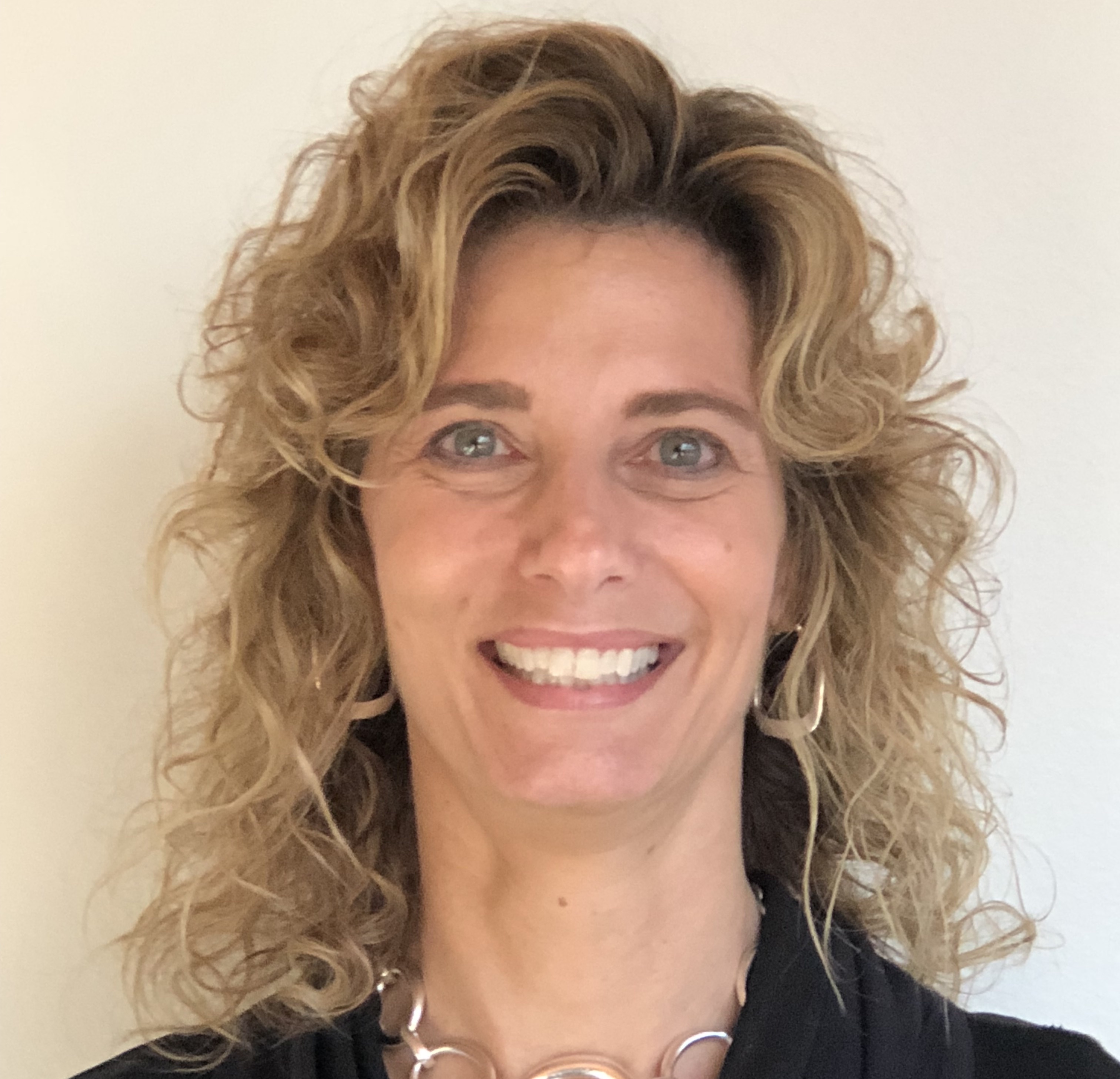
Joy Dettorre
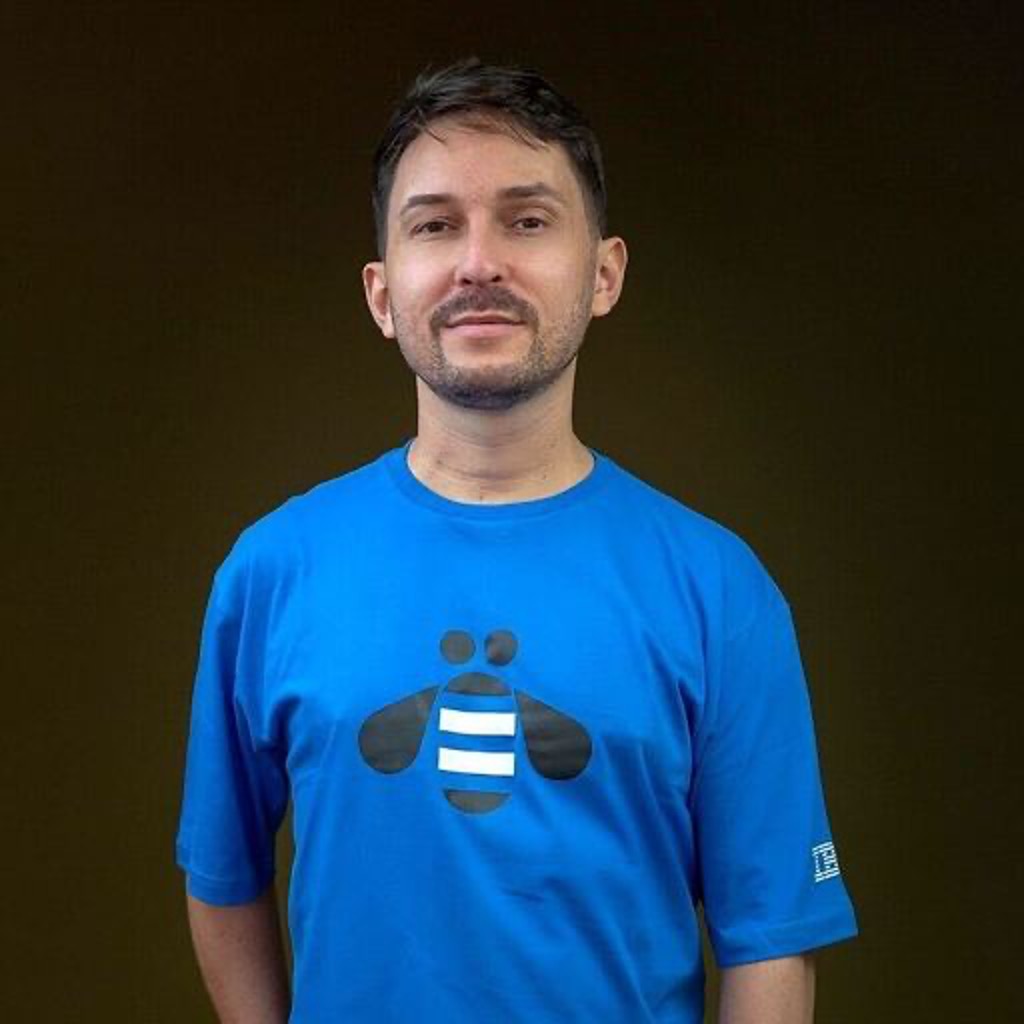
Luiz Lopes
Today's Guests
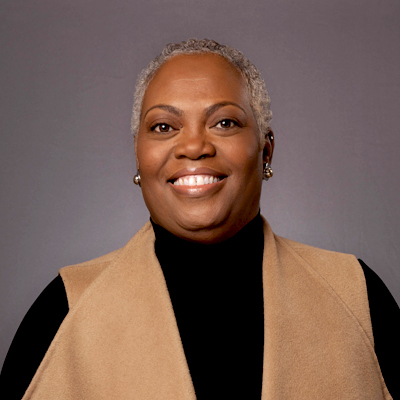
Kitty Chaney Reed
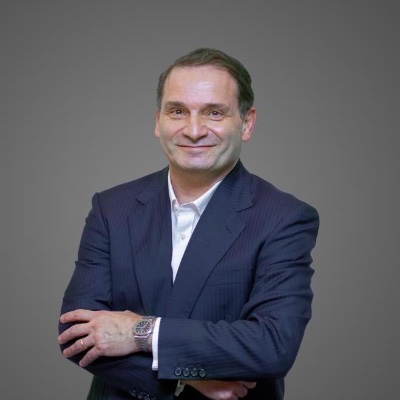
Saad Toma
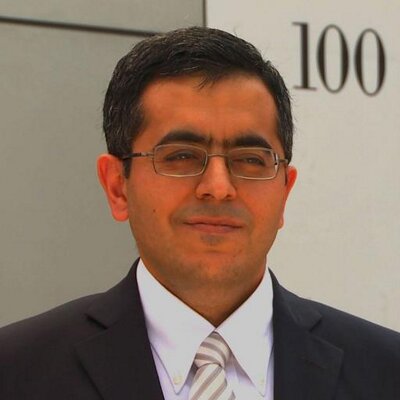
Amit Sharma


